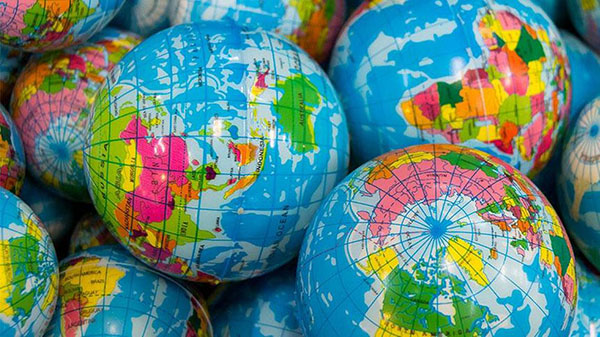International ‘superfund’ could ease the human, economic costs of health crises
By Ed ShoucairMiami Herald, September 02, 2020 05:11 PM

A superfund to which all countries contribute could ease national debt, find solutions to disease and climate change. (Getty Images)
Winston Churchill’s words ring true today: “Never let a good crisis go to waste.”
Today’s global pandemic makes it clear that lethal viruses are here to stay. Equally evident is the need for new ideas to better address pandemics and the intensifying public health emergency of global warming. Both travel the planet without regard to borders and inflict immeasurable harm.
It’s time to connect the dots between public health, climate change and the economy. Remember what we were taught early on? “Take care of your health and everything else will follow.” Or as the Roman poet Virgil wrote, “The greatest wealth is health.”
Public health takes priority over the economy. Simply look at the world’s response to the coronavirus pandemic. Trillions are being spent to cure the sick, to keep others from falling ill and to prevent the economy from crashing into a depression that would make the one in the 1930s seem short in length and mild in injury.
It is important to ask: Where is the bulk of the money coming from to cope with the pandemic and the associated economic fallout?
The answer: Nations are heaping debt onto their balance sheets.
And because all nations face the same public health emergency, a tacit agreement is likely to be reached for how to account for the debt. Expect world leaders and their treasury directors to classify this debt as a “special, one-time occurrence.” Expect them to credit one another for taking the legitimate and necessary steps to address this public health crisis that requires action on a massive scale. The outcome will be an international economic understanding that the money had to be spent, footnoted as emergency expenditures — and under the rug the debt and dust will go.
There is a better way. It starts with the creation of a World Future Superfund, a giant investment fund for the planet underwritten by nations to prepare for future public health emergencies and the Earth’s feverishly rising temperature.
Endowed with tens of trillions of dollars’ worth of credit backed by nations of the world, the Fund would award grants to nations for public health projects and global-warming solutions. Money would come from nations self-financing their contributions. And because a nation’s added debt would benefit every nation, contributions would be accounted for as special investments on national balance sheets with no repayment required. The logic is simple. It is better to invest and prepare now than spend more later on emergency interventions that end up being effectively written off.
Giving nations grants would ensure there are enough masks, medical tests, trained medical personnel, health clinics and laboratories for research and developing vaccines when the next viral health crisis begins. Finally, nations would have enough resources to switch to clean-energy technologies, remake communities to run more efficiently and resiliently, and reverse environmental damage that’s been done. And, instead of rising temperatures, these investments would stimulate a rise in job growth.
The creation of the World Future Superfund would reflect an understanding that no amount of money is too much to protect the world’s public health. And with the priority being the health and future of the planet, there is no point in skimping. For example, a 2019 Morgan Stanley study projects a worldwide investment of $50 trillion would be needed to meet the Paris Climate Agreement’s goals of significantly limiting global temperatures and reducing net carbon emissions to zero by 2050.
To ensure the grants are not used for other purposes, Fund regulators would conduct ongoing oversight. Countries found not adhering to grant guidelines would risk losing future access to the funds. Nations choosing not to contribute would naturally not be eligible to receive grants.
Today’s pandemic presents a critical choice. We can fail to learn from this public health emergency and continue to lurch from crisis to crisis while suffering and spending increase. Or we can invest in our shared future wisely, openly and together. Establishing a World Future Superfund offers a way to prepare for coming pandemics and bend the temperature curve of global warming. The choice is between investing now or paying a higher price later.
Link to the Source Article.


